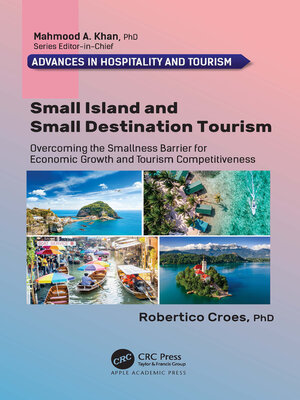Small Island and Small Destination Tourism
ebook ∣ Overcoming the Smallness Barrier for Economic Growth and Tourism Competitiveness · Advances in Hospitality and Tourism
By Robertico Croes

Sign up to save your library
With an OverDrive account, you can save your favorite libraries for at-a-glance information about availability. Find out more about OverDrive accounts.
Find this title in Libby, the library reading app by OverDrive.



Search for a digital library with this title
Title found at these libraries:
| Library Name | Distance |
|---|---|
| Loading... |
This unique and thoughtful book considers the tourism specialization, economic growth, and tourism competitiveness of a very specific type of tourism: small islands practicing warm water island tourism.
This new book thoroughly examines the phenomenon of why some small island destinations have been more successful than others. The main premise applied is that success and survival of small island tourism hinges on resolving the mystery regarding the relationship between competitiveness and quality of life. In addressing this question, the book reviews four relevant and interconnected concepts: tourism, competitiveness, quality of life, and scale (or size). In doing so, the book enhances understanding of the potential of tourism for the improvement of the quality of life of the residents of small islands.
In the last chapter of the book, the author assesses the impact of COVID-19 on tourism and specifically its ramifications for small island destinations. Whether small island populations can rise from beneath the COVID -19 burden that threatens their economic future is yet to be seen.
Small Island and Small Destination Tourism: Overcoming the Smallness Barrier for Economic Growth and Tourism Competitiveness is written from a sustainable perspective that combines tourism dynamics, development, competitiveness, quality of life, and business. As such, it is aimed at a broad but higher-level audience including graduate students, academicians and researchers, practitioners, policymakers, and international organizations.







